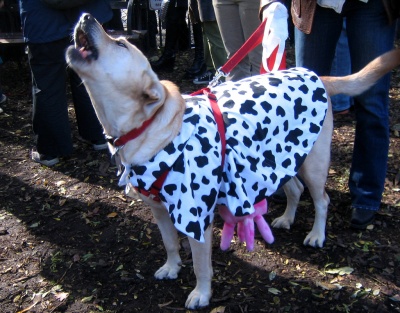 |
Barking is a normal activity for a dog and one that is not easy to control. All dogs bark to some degree. But some breeds are bred to bark. Guard and herding dogs particularly bark a lot because they are bred to sound an alarm if they sense danger. Barking is one of ways dogs communicate with the world.
There are other reasons why dogs back besides sending an alarm.
- They may be answering another dog’s bark.
- Sometimes dogs use barking as an attention-getter. They want you to focus more on them.
- Dogs will bark when something excites them, especially during playtime.
- Dogs that don’t get enough exercise or mental stimulation will often bark out of boredom or frustration.
- Your dog may bark at something that is frightening him/her – a loud sound, a person, the wind blowing things around.
- When dogs are teased they will bark at the perpetrator. But beware because this can escalate into a warning growl and that could turn into a bite. Of course no one should ever tease a dog and this behavior should be stopped ASAP.
Here are some tips on controlling excessive barking.
- Teach your dog to lie down on command. It’s difficult to bark from a prone position.
- Choose a word to use when you want your dog to stop barking. Don’t shout, this will only excite him/her more. Be consistent, using the same word and tone. Your dog will get the message.
- If your dog is barking at a person or an object, just remove your dog to a place where he/she can’t see the object of his/her barking. Alternatively, introduce your dog to the person or object if possible, although this can take time.
- If your dog is bored try stimulation with a walk or a puzzle toy.
- Exercising your dog before you leave the house relieves anxiety and reduces separation barking. If your dog is tired, chances are he/she will take a nap.
- With an excited dog, try giving the command to sit or lie down. A time-out can have a calming effect.
- Don’t pet your dog or give treats immediately after the barking stops. Your dog will associate barking with rewards. Wait a while, then offer treats.
- Use a head halter. Gently pull the dog’s head up. The dog’s mouth will close and barking stops. Then release and praise.
- Try Bach Rescue Remedy to calm your dog.
- Tellington Touch – Gently hold the ear flap between thumb and forefinger. Stroke from the base of the ear to tip several times, covering the entire ear area. Also try drawing tiny circles with your fingers at the base of the ear.
I am aware that there are sprays and collars available that may stop a dog from barking. However, they do not get to the root problem. And I believe in more humane ways of stopping excessive barking.
- If you find the barking annoying and you’ve tried everything, consult with your veterinarian or an animal behaviorist.
- Never, ever punish your dog for barking even if it is excessive. Be patient, training is not an overnight task. Keep in mind that barking is an important tool for communication and you don’t want to stop it entirely.
I have a barker. My latest rescue Cookie, a Shepherd mix, can bark incessantly at seemingly nothing, at least nothing within my hearing. I accidentally hit upon a method that works for me. I call her, softly say “shh” and then I put my finger to my lips and say “no talking”. If your dog is concentrating on you, s/he is not barking. Of course, as I said previously, I don’t want to stop Cookie from barking all the time but I want her to learn to bark at appropriate times.


